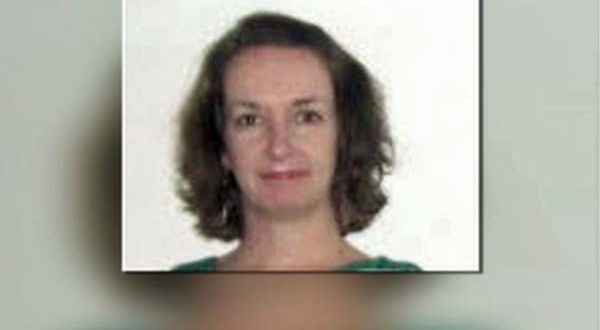The Scottish nurse being treated for Ebola in a London hospital is now in a critical condition, doctors said Saturday.
A statement from the Royal Free Hospital said the health of Pauline Cafferkey, who was diagnosed after travelling back to Glasgow from Sierra Leone, had deteriorated over the past two days.
Ms Cafferkey, who was part of a team of medical volunteers deployed to Africa by the UK Government last month, is being treated using the blood of a recovered patient and an experimental anti-viral drug which has not yet been proven to work.
Meanwhile, a person in Wiltshire with a history of travel to West Africa is being tested for Ebola “as a precautionary measure”.
In a statement, Great Western Hospitals NHS Foundation Trust said: “The Trust is awaiting results of a sample, which is being screened for a variety of infectious diseases prevalent in the affected countries, one of which is Ebola.
“As a precaution, the patient is being kept in isolation until blood test results are available.”
Earlier this week Dr Michael Jacobs, who has been involved in Ms Cafferkey’s treatment, said she had been sitting up and talking – adding she was able to read, eat and drink and had spoken to her family.
However, he revealed the hospital was unable to obtain ZMapp, the drug used to treat fellow British volunteer nurse William Pooley, who recovered, because “there is none in the world at the moment”.
A brief statement on the hospital’s website said: “The Royal Free London NHS Foundation Trust is sorry to announce that the condition of Pauline Cafferkey has gradually deteriorated over the past two days and is now critical.”
Health Secretary Jeremy Hunt said: “I know Dr Mike Jacobs and his team at the Royal Free Hospital are working tirelessly to provide her with the best possible care.”
Prime Minister David Cameron and Scottish First Minister Nicola Sturgeon added their “thoughts and prayers” were with the nurse and her family during this “extremely distressing time”.
Ms Cafferkey, who is from Glasgow and works at Blantyre Health Centre, South Lanarkshire, was diagnosed with the deadly virus after returning to Glasgow from Heathrow. She had flown from Sierra Leone via Casablanca in Morocco.
At Heathrow, the 39-year-old was considered high risk because of the nature of her work and checked, but showed no symptoms. When she raised concerns about her temperature, she was checked a further six times but cleared to travel and returned to Glasgow.
Ms Cafferkey was then transferred from Scotland to north London on an RAF Hercules plane.
A Public Health England (PHE) spokeswoman confirmed all British-based passengers and crew members on both flights from Heathrow to Glasgow and from Casablanca to Heathrow have been contacted.
She said they had all been “given advice and reassurance” by health officials.
She added that an additional 31 passengers on the Casablanca to Heathrow flight were being contacted by international public health authorities.
The Moroccan Ministry of Health has also been tracing passengers aboard the Royal Air Maroc flight from Freetown in Sierra Leone to Casablanca as a precautionary measure.
All passengers on that flight were screened before they left Freetown and cleared to travel, as well as on their arrival in Casablanca, PHE said.
Agencies/Canadajournal
 Canada Journal – News of the World Articles and videos to bring you the biggest Canadian news stories from across the country every day
Canada Journal – News of the World Articles and videos to bring you the biggest Canadian news stories from across the country every day



